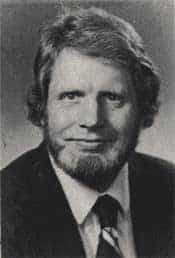This Day in Presbyterian History:
Similarities and Differences in the Two Sacraments
The month of November must have been the month when all Presbyterians went on Sabbatical! We have never had so many dates when this writer has been forced to say that little or no significant dates of Presbyterian history have been found. But December will be better for Presbyterian dates. For now, on November 30, we go to two questions and answers from the Larger Catechism, and together these will end our extended study on the Sacraments of Baptism and the Lord’s Supper.
Question and answer 176 reads: “Wherein do the sacraments of baptism and the Lord’s supper agree? A. The sacraments of baptism and the Lord’s supper agree, in that the author of both is God; the spiritual part of both is Christ and his benefits; both are seals of the same covenant, are to be dispensed by ministers of the gospel, and by none other; and to be continued in the church of Christ until his second coming.”
Question and answer 177 reads: “Wherein do the sacraments of baptism and the Lord’s supper differ? A. The sacraments of baptism and the Lord’s supper differ, in that baptism is to be administered but once, with water, to be a sign and seal of our regeneration and ingrafting into Christ, and that even to infants; whereas the Lord’s supper is to be administered often, in the elements of bread and wine, to represent and exhibit Christ as spiritual nourishment to the soul, and to confirm our continuance and growth in him, and that only to such as are of years and ability to examine themselves.”
Both of these questions would be great questions to ask potential officers of our churches, including those who would seek to be pastors in our presbyteries, for they require an overall understanding of baptism and the Lord’s Supper. Indeed, they are an excellent teaching tool for the Christian parent to prepare the children for church membership.
There are five areas of agreement between the two sacraments. For both, the author is God. Christ and His benefits are represented as being instituted. Both are seals of the covenant of grace. Both are church sacraments. And both are to be practiced until we see Christ in the flesh at His second coming.
The differences are simple and understandable. The outward elements are water, in the one, contrasted with bread and wine in the other sacrament. Then too, the timing of Christ’s benefits to the believer differ, in that baptism speaks of the beginning of the Christian life, while Communion speaks of its continuance. Baptism is to be done once and not repeated. The Communion is to be done often. Baptism includes infants while the Lord’s Supper implies the ability to discern the elements.
Words to live by: Our two catechisms considered today are definitely doctrinal in scope. Yet at the same time, they presuppose a basic understanding of the two sacraments which will enable God’s people to participate in them with a greater understanding. Let us make sure that their spiritual experience describe us, not just their outward and external experience. “Examine yourselves, to see whether you are in the faith. Test yourselves, that Jesus Christ is in you?. . . .” (ESV – 2 Corinthians 13:5c)
Through the Scriptures: Acts 20:2 ; Romans 1 – 4
Through the Standards: Rules for keeping some from partaking
WLC 173 — “May any who profess the faith, and desire to come to the Lord’s supper, be kept from it?
A. Such as are found to be ignorant or scandalous, notwithstanding their profession of the faith, and desire to come to the Lord’s supper, may and ought to be kept from that sacrament, by the power which Christ has left in his church, until they receive instruction, and manifest their reformation.”


